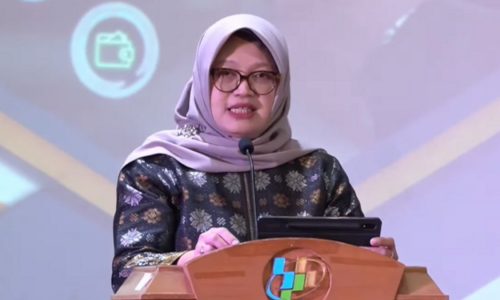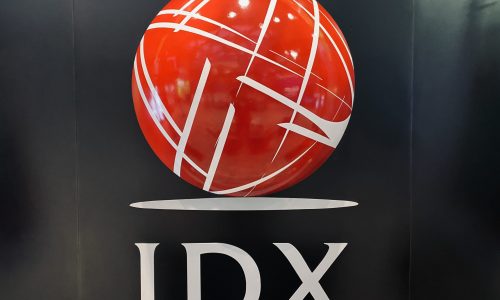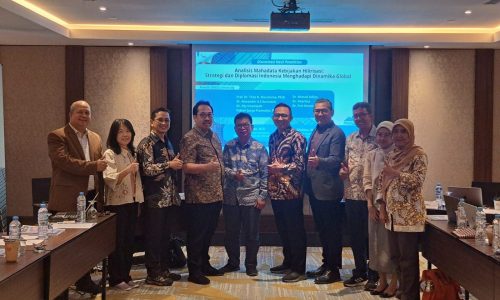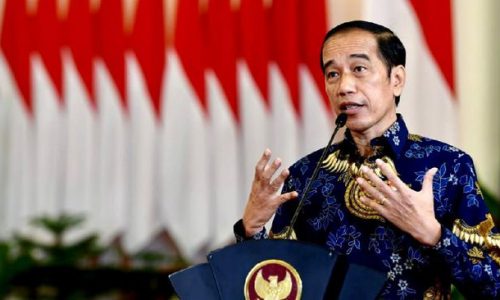Minister of Energy and Mineral Resources (ESDM) Bahlil Lahadalia has requested the parliament and the ministry to review the power wheeling scheme in the new and renewable energy (EBT) bill in regards with Law No. 30/2009 which stipulates that it is state owned power utility (PLN) that has authority to distribute electricity to the consumers in affordable price.
“We should not put the burden on the people, so we will encourage the law for the future,” he said on Friday, October 18, 2024.
The power wheeling scheme in the EBT bill has stirred controversy among the civil society groups and activists. Mutya Yustika, an Energy Financial Analyst at the Energy Institute for Energy Economic and Financial Analysis, said government’s plan to apply power wheeling or joint use of power network in the EBT bill has the potential.
to attract investors to invest in Indonesia as can be seen the increased number of global companies committed to use 100 percent of renewable energy.
The lack of renewable energy supply in Indonesia has created the risk of losing huge economic potential and Indonesia has been left behind its neighbouring countries.
“Power wheeling in Indonesia can increase economic growth through investment, creating jobs and aiding the state to meet decarbonization target without burdening national budget. This will also help the PLN to focus on modernization and increasing electricity network to facilitate energy transition,“ Mutya said.
The mechanism can cover green energy supply gap because of the slow renewable energy development at utility scale by PLN. On the other hand, there is urgency also to reduce Indonesia carbon emission from electricity. Indonesia has produced more than 682 grams CO2 equivalent to kilowatt hour (gCO2e/kWh) that make Indonesia one of the world’s biggest emitters.
Besides, power wheeling is also encouraged by more than 430 global companies in the RE100 list that have commitment to achieve 60 percent of electricity from renewable energy by 2030 and 100 percent by 2050. Currently there are 121 members of RE100 that are operating in Indonesia.
“However , the companies have no renewable energy solutions that are sufficient enough to electrify their facilities and supply chains, so it hampers commitment efforts of RE100 and the companies’ mandate for sustainability,” Mutya said.
A policy observer has voiced his opposition against the government’s plan to allow the private sector to use PLN’s transmission and distribution network to sell their electricity, also known as Power Wheeling Policy, in the EBT bill.
“Power Wheeling means private sector that has power reserve in Central Java, for example, can sell their electricity to Jakarta by using PLN transmission network. Based on the Constitution and the Constitutional Court ruling, the private sector cannot directly sell their electricity to costumers,” Director of Indonesia Resources Studies (IRESS), Marwan Batubara, said.
Constitutional Court Ruling No. 001-021-022/PUU-I/2003 stipulates that in a free market mechanism, capital owners are the ones who benefit, while the community suffers the losses. Unbundling policy with open competition, including Power Wheeling scheme, is an effort to privatize electricity generation and make electricity as a market commodity.
“This could mean that the state no longer provides protection to the majority of people who live in economic deprivation,” Marwan said.
Expensive electricity
He said further that by implementing the policy, which he considers as liberal, the state actually acts unfairly and in favor of the private sector, namely giving capital owners, or even foreign investors, the opportunity to enjoy huge profits, but at the same time forcing the people to pay more expensive electricity.
In fact, the Constitution regulates that such an opportunity must be given to State-owned enterprises as holder of the monopoly rights.
The Power Wheeling scheme allows the private sector or independent power producer (IPP) to prey on PLN’s premium customers who generally need huge power and pay large electricity bills. Its implementation is suspected to be full of moral hazard that may continue along with the construction of new and renewable energy (EBET) power plants owned by the private sector/IPP without caring about electricity oversupply, which is similar to inject the death of coal-fired power plants (PLTUs) which are economically still feasible.
“This will burden PLN’s operating costs and reduce its revenue, so that the ability to cross-subsidize the poor and the disadvantaged is reduced, while the electricity tariffs rise and the burden of state budget energy subsidies increases,” Marwan said.









